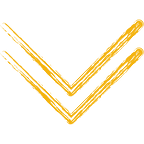Clinical examination and procedural skills 💉
Descriptors and examples for the RCGP Trainee
This capability area is about clinical examination and procedural skills. By the end of training, the trainee must have demonstrated competence in 5 mandatory skills and a range of other examination and skills relevant to General Practice.
💭 Example Reflection
Reflection on on-call shift 📟
Reproduced with permission from the RCGP website. Correct as of 09/02/2021.
Description
I worked a busy weekend on call covering general psychiatry over several hospital sites.
Reflection: What will I improve, maintain, or stop?
I will continue to improve my time management skills during busy working periods. I feel that every job I have done have been busy in different ways and have required me to juggle tasks and prioritise tasks differently. I am now imminently going to be moving to GP and am excited to see how my skills transfer and what new ones I need to learn. The experience of covering multiple different sites has been unique with this job and is extremely challenging at times, when you cannot be everywhere at once. There will also be a different type of team in GP, which I am looking forward to, especially after having quite minimal contact with a team for much of this rotation.
Learning needs identified from this event
I am aware that I need to continue to improve my skills in seeing patients in remote of nonclinical environments, for example on home visits. There are parallels with seeing patients with medical problems OOH in a psychiatric hospital with doing home visits, as psychiatric hospitals are not set up for medical emergencies, and is it very limited in terms of what medical problems can be dealt with.
Clinical Examination and Procedural Skills
Trainee: I was attended one of the psychiatric hospitals to review a male patient with abdominal pain. In order to assess him I examined him. At the moment, in a psychiatric hospital, this involves reviewing them in a locked treatment room with a nurse present. I also wear PPE with gloves, a mask and apron. I tried to be sensitive to the fact that I knew he was in a lot of pain and very anxious, and that examining his abdomen was likely to be very uncomfortable, but very important as it meant I could elicit signs such as guarding, which added to my concerns about him needing to go to hospital to rule out serious pathology.Trainer: You recognised that the patient was anxious and carried out the examination without causing any harm. Wearing PPE causes additional anxiety for patients, given they can’t always hear what we are saying, and we lose some of our communication by wearing a mask covering a lot of our face.
Working with colleagues and in teams
Trainee: I find that during on calls you have to use a very particular type of team working skills, as you have to create a mini, instant team for the on calls without knowing who is going to be in the team in advance. The same doctors do nights and days for the weekend, so you hand over to them at the start and end of the shifts, and this continuity is really helpful for patient care. Since the pandemic, there has been a meeting every night at 21.30 via skype, which includes the SHOs, registrar, consultant and matron or nurse in charge. It is really helpful to have the nursing staff represented at the meeting. In one meeting, I discussed a patient who had just become unwell and the meeting meant that the consultant was able to share an experience of covid19 presenting in a manner like my patient, and the nursing staff being present meant they could immediately go and put the plan we came up with into place, as well as me phoning the nurse directly after the meeting. It facilitated improved patient care.Trainer: The pattern of work during COVID has evolved. You highlight a really positive step of having a remote handover with the whole team present, to deliver efficient, safe patient care . I wonder if this will remain moving forwards.
Organisation, management, and leadership skills
Trainee: During this busy weekend, I attended Ravenswood Hospital, which is geographically remote and therefore I needed to manage my time well to ensure I did tasks at hospitals which were on my way to Ravenswood. When I arrived, there was a major incident occurring and therefore I could not immediately do the seclusion reviews which I had attended to do. Once I established that there was nothing I could do to help, I asked if there was somewhere I could work, so that whilst I was waiting I could continue to work remotely on my laptop. This allowed me to ensure that the delay did not effect patients which still needed my attention, for example medications prescribing remotely, as I could access their records online and prescribe remotely.Trainer: COVID has enabled much more remote working, with IT being provided, and system in place to enable this, which has benefits to providing safe and timely reviews and care whilst on call. You utilised your time efficiently and prioritised tasks to help manage your time during your on-call shift
Supervisor comment
COVID has led to us working more closely as a team, working from the same list at times, rather than having our own clinics. We have introduced video consultations which has helped some remote consultations, in addition to using a text service to submit pictures. It is now possible to have an additional clinician/relative join a video call; this will help during the ‘shadowing’ induction period.
